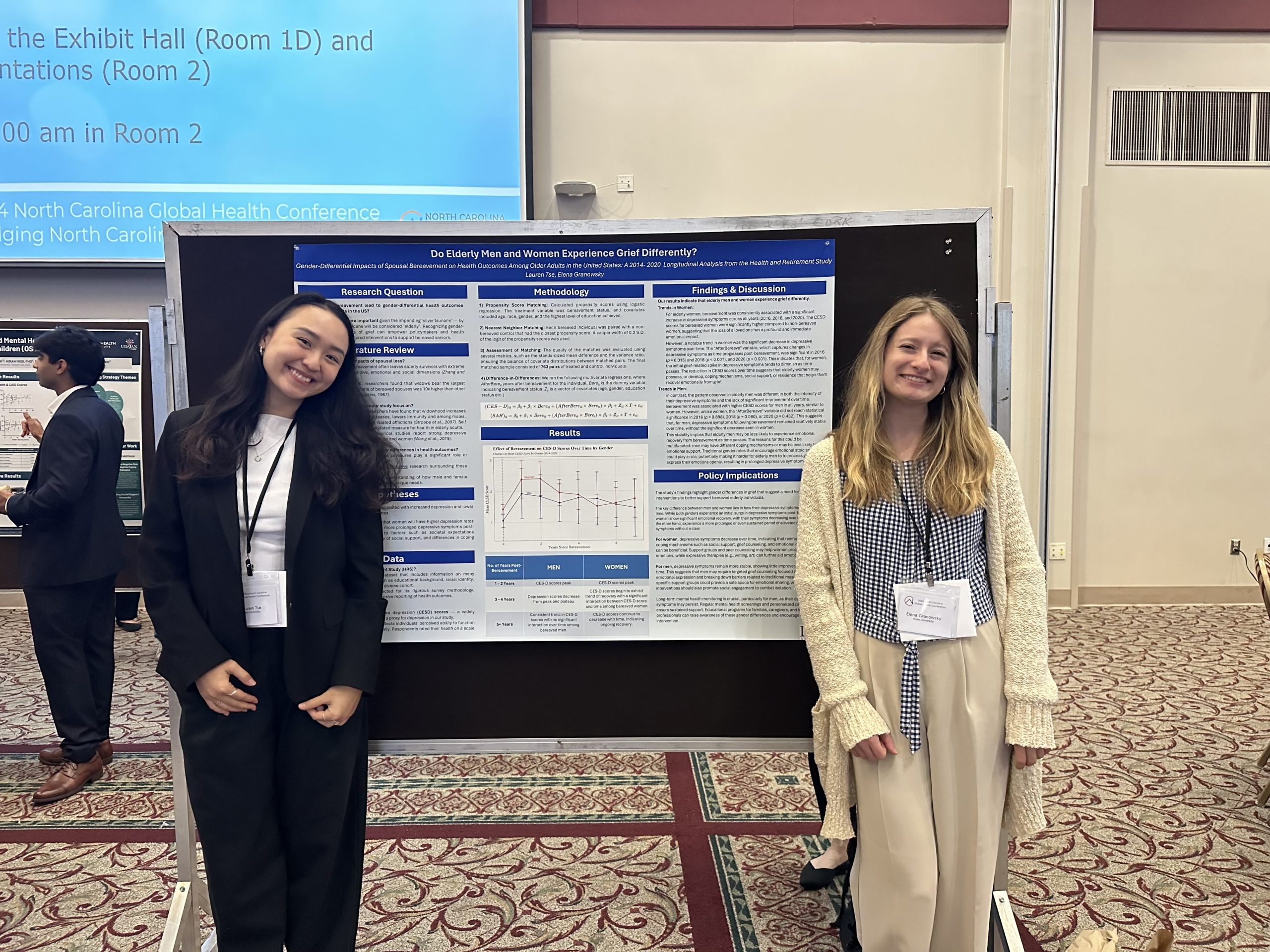Last week, two Cook Center students from the spring 2024 Global Inequality Research Initiative (GIRI) seminar, Elena Granowsky and Lauren Tse, delivered a poster presentation on their research project at the North Carolina Global Health Alliance Conference in Raleigh.
Their research “Do Elderly Men and Women Experience Grief Differently?,” which was completed as a capstone project for the GIRI seminar on Gender and Development, looked at bereaving seniors in the U.S. between 2014-2020. Granowsky and Tse found that “bereaved women, while initially more affected, recover faster than men, highlighting a need for targeted mental health programs for bereaved men.”
The complete abstract for the research project is below. Congratulations, Elena and Lauren!
Title: Do Elderly Men and Women Experience Grief Differently? Gender-Differential Impacts of Spousal Bereavement on Health Outcomes Among Older Adults in the United States: A 2014- 2020 Longitudinal Analysis from the Health and Retirement Study
Abstract: This paper investigates the gender-differential health impacts of spousal bereavement among elderly adults in the United States between 2014 and 2020. With an aging population and increasing instances of spousal loss, the study aims to inform healthcare policy and interventions tailored to bereaved seniors. Health outcomes were assessed using Center for Epidemiological Studies Depression (CES-D) scores and self-reported health measures, drawing on data from the University of Michigan’s Health and Retirement Survey (HRS). Using propensity score matching (PSM) and Difference in Differences (DID) analysis, the study analyzed health outcomes pre- and post-spousal loss, with a hypothesis that women would experience higher initial depression levels but recover faster due to social support and norms around emotional expression. Results indicate that women experience a statistically significant decrease in CES-D scores each year following spousal loss, signaling a recovery trend. In contrast, men’s CES-D scores show no significant improvement over time, indicating that they may struggle with prolonged emotional challenges after spousal bereavement. No significant differences were found in self-reported health measures for either gender. These findings suggest that bereaved women, while initially more affected, recover faster than men, highlighting a need for targeted mental health programs for bereaved men. The study emphasizes the importance of developing gender-specific healthcare interventions to support bereaved seniors, contributing to the broader understanding of how spousal loss affects mental health across genders.

